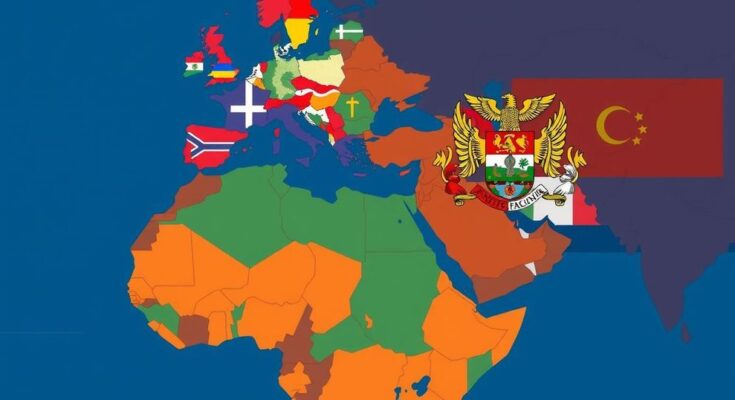Russian President Vladimir Putin has pledged “total support” for African countries in combating terrorism during a summit in Sochi. This outreach aligns with the increasing desire among African nations to seek alternatives to Western partnerships, particularly in security and development sectors. Several leaders expressed a preference for Russia over traditional allies, and the discussion highlighted collaborations in energy, technology, and military support, amidst concerns about external influences in the region.
During a recent summit in Sochi, Russian President Vladimir Putin, conveyed through Foreign Minister Sergei Lavrov, declared “total support” for African nations in combating terrorism and addressing diverse challenges. This overture aligns with growing sentiments among several African governments, such as Burkina Faso and Mali, which seek alternatives to traditional Western relations, particularly with France. Diplomatic engagement from Russia also extends to sectors like energy, telecommunications, and mining, with assurances of non-interference in domestic affairs. The discussions underscored the increasing military cooperation between Russia and African states, particularly in light of rising jihadist threats. Notably, Burkina Faso’s Foreign Minister expressed a preference for Russian partnerships, juxtaposing it with what he described as a “neo-colonial” approach from Western nations. This sentiment was echoed by Mali’s Foreign Minister, emphasizing the strategic diversification of partnerships as vital for national interests in the Sahel region. Amid negotiations for military support and socio-economic collaboration, the Kremlin has managed to position itself favorably in an arena previously dominated by Western nations, as acknowledged by EU envoy Emanuela Del Re. She highlighted the importance of recognizing Africa’s evolving alliances, which now include engagement with various global players including Russia, Turkey, and Iran. Rwanda serves as a prime example, having initiated projects with Russia, specifically in nuclear energy, and indicating the pragmatic approach many African leaders are taking in fostering diversified international alliances. Although trade promises between Russia and Africa have yet to materialize fully, the Kremlin’s maneuvers have undeniably solidified its influence on the continent, raising concerns within the West regarding the implications of such partnerships.
The context of this article delves into Russia’s recent efforts to strengthen ties with African nations amidst a backdrop of shifting geopolitical alliances. Traditionally reliant on Western powers, many African states have begun to explore alternative partnerships, particularly with Russia, as reflected in their increasing requests for military and developmental assistance. This trend is motivated by dissatisfaction with Western involvement and a desire for greater autonomy in managing national affairs, as well as a strategic response to local challenges such as security threats from extremist groups.
In conclusion, Putin’s commitment to provide comprehensive support to African nations marks a significant pivot in international relations within the continent. As various African governments seek non-Western alternatives, Russia’s underlining motives—rooted in mutual interests—have pronounced implications for regional stability and foreign policy dynamics. The landscape of alliances in Africa continues to evolve, placing emphasis on pragmatic partnerships over historical ties to former colonial powers.
Original Source: www.bbc.com




